How historian Niall Ferguson became a religious believer
The sharpest historian in the West, Niall Ferguson, thinks throwing away Christianity was pretty dumb. Doing so hurt our culture; more important, it has hurt individual human beings. Striking words, coming from a ‘lapsed atheist’.
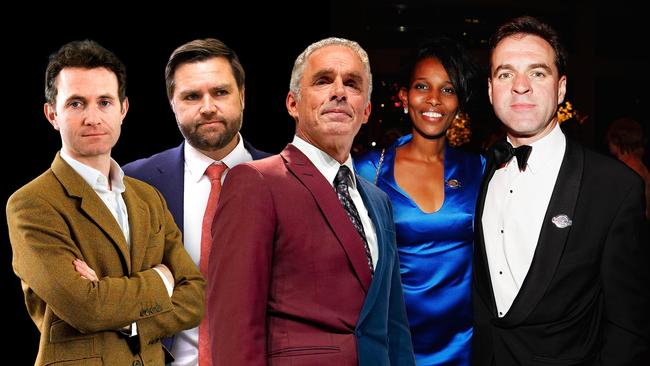
Niall Ferguson is perhaps the most influential historian, and one of the most influential intellectuals, in the world today.
He has written 16 books, including seminal works such as Civilization: The West and the Rest, Empire: How Britain Made the World and, in the light of Covid, Doom: The Politics of Catastrophe. He has produced and narrated award-winning television documentaries.
His glittering academic career, from Oxford to Harvard to Stanford, has taken a new turn as he and friends have founded the new University of Austin in Texas.
And he’s well known to readers of The Australian as a prolific journalistic commentator and analyst of geostrategic and global economic trends.
He’s so productive you almost think there must be three of him.
But here’s the most striking thing you’ll learn about Ferguson. Quietly, but with great commitment, Ferguson has become a religious believer. With his wife, Ayaan Hirsi Ali, and their sons, he has become a churchgoing Anglican Christian.
He is, in his own words, a “lapsed atheist”. Much more important, he’s a believing Christian. Though Ferguson sees profoundly the crisis of our times, and the contribution to that crisis brought about by the abandonment of Christianity, this is not primarily a political conversion. It’s a deeply personal and deliberate turn to faith by a man who was formerly a lifelong atheist.
I’ve got to know Ferguson a bit. Happenstance twice put him on conference panels I was chairing, once in Britain, once in Sydney. And we’ve had a number of other conversations. He’s the best kind of Scot, full of fun, happily irreverent, makes and takes a joke, and wears his vast learning easily.
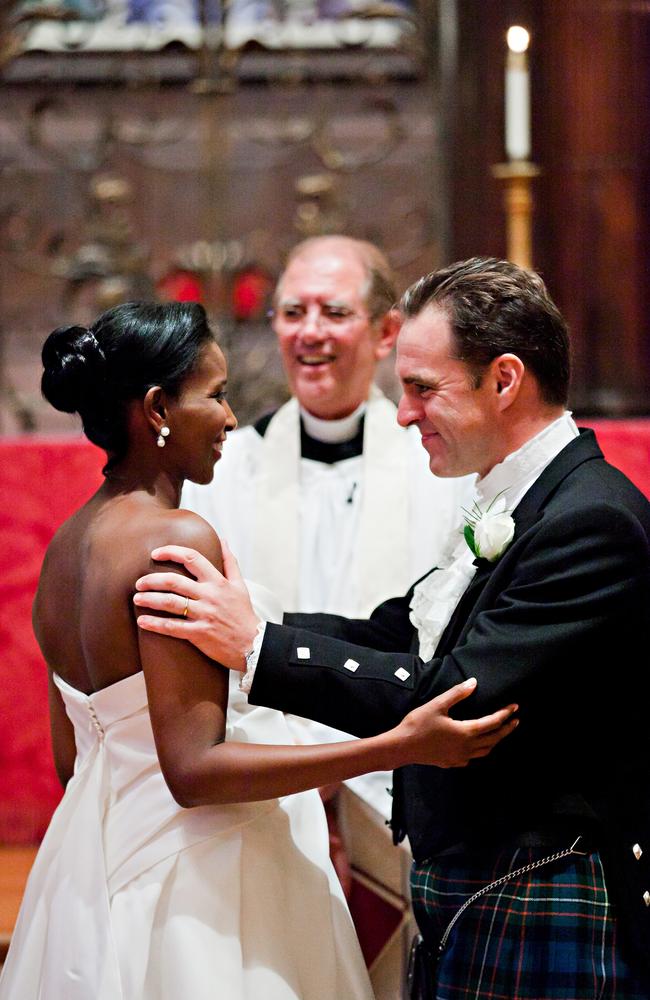
Famously, he’s married to Hirsi Ali, who made her own long journey from Somalia to the US via The Netherlands and Britain. She abandoned the Islam of her childhood and became a strong critic of Islamism, embracing atheism and then slowly moving to Christianity. She has placed her own conversion in the context of the civilisational struggle for the West, but she also wrote that she turned to Christianity “because I ultimately found life without any spiritual solace unendurable – indeed very nearly self-destructive. Atheism failed to answer a simple question: what is the meaning and purpose of life?”
There seems to be a significant movement to Christianity among some of the most influential intellectuals today.
Jordan Peterson famously says he’s no longer an atheist. Last year he told me he now believes that Jesus Christ is the son of God, not just symbolically but truly. His wife, Tammy Roberts, herself an influential podcaster, this year became a Catholic after a long illness.
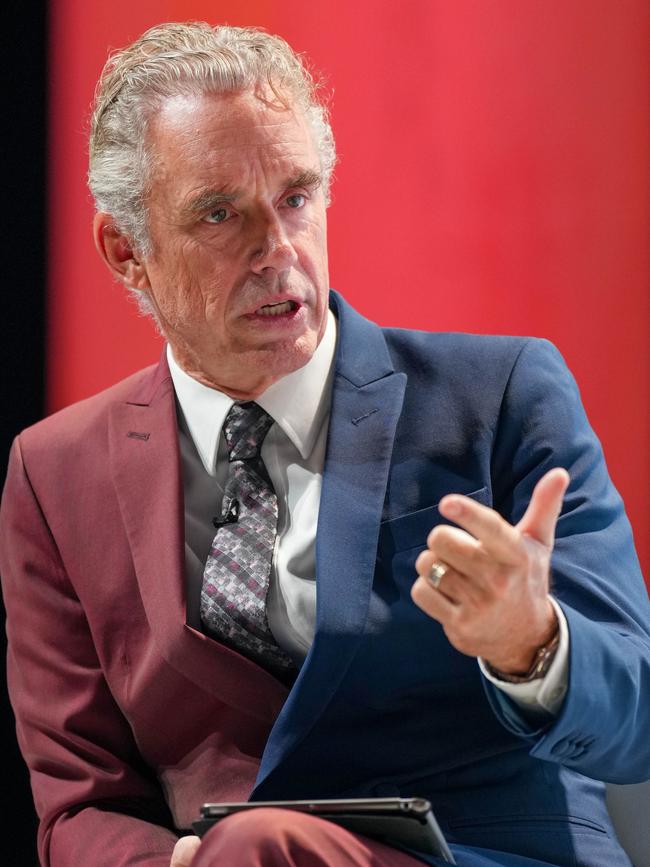
US vice-president-elect JD Vance went through a long atheist phase, but he too has since renewed his Christian belief and become a Catholic. Tom Holland, the brilliant historian who wrote the influential book Dominion, about the Christian origins of the Western mind, has described his own journey of belief. Paul Kingsnorth, once a radical atheistic environmentalist and a bestselling author, embraced Eastern Orthodox Christianity. Many other intellectuals have done the same.
Prolific author Douglas Murray represents another kind of intellectual who has grown to appreciate more and more the cultural contribution, necessity even, of Christianity but, while immensely sympathetic to it and therefore opposed to the militantly secular spirit of the age, has stopped just short of actual personal belief, though he’s moved, he says, from “Christian atheist” to “Christian agnostic”.
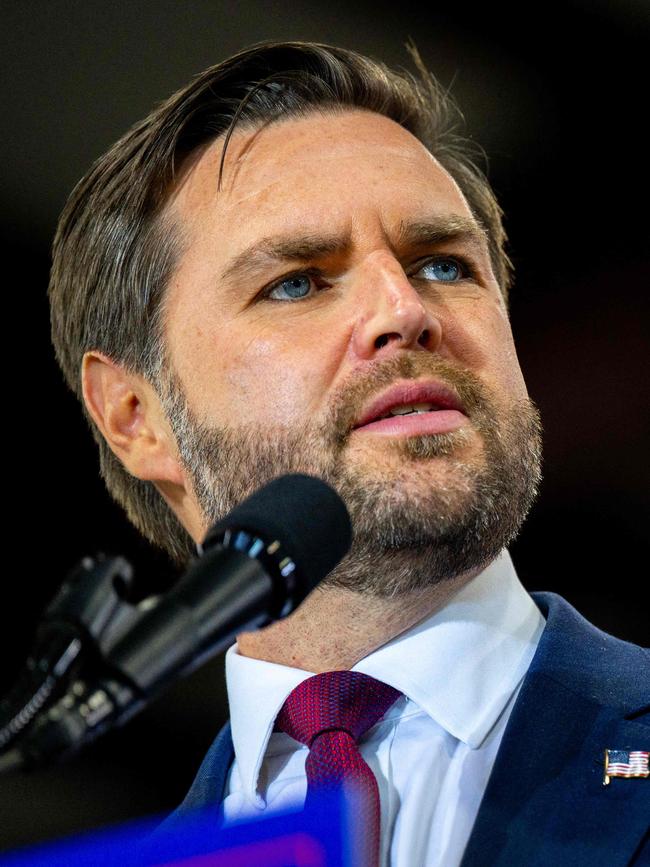
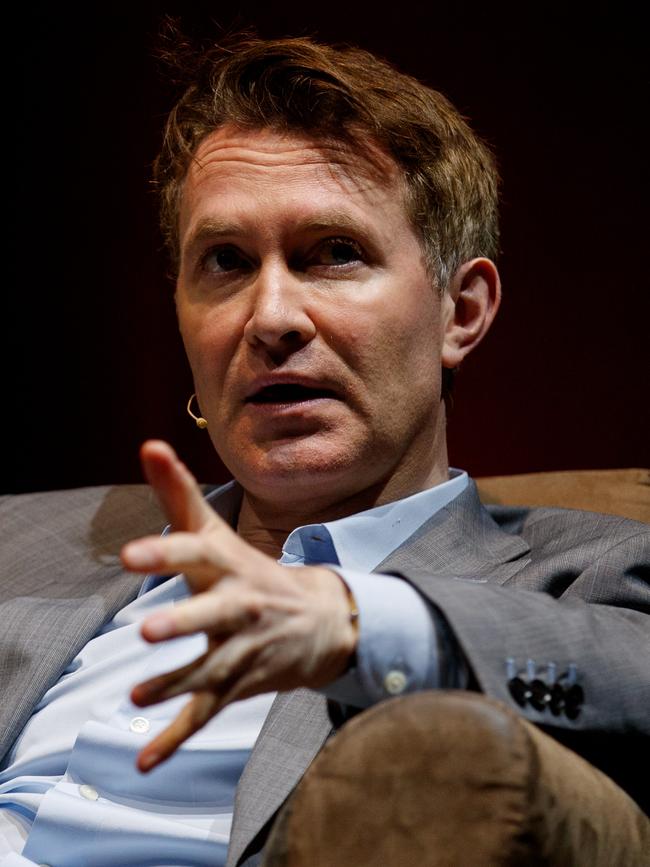
Is there a hint of the 1920s and ’30s? That too was a period of intense political and geostrategic dislocation, and geniuses of that time, Graham Greene, Evelyn Waugh, CS Lewis, Thomas Merton among them, became Christians. Lewis had been an atheist, as had Waugh for a time, Greene a member of the Communist Party, Merton a dissolute bohemian.
It would be wrong to put Ferguson in some neat box or social trend. Probably the quickest way to arouse his suspicion about anything would be to label it fashionable or a trend. He’s the most individualistic and original of thinkers. Yet his conversion to religious belief reflects some consciousness of the time’s social crisis, as well as personal change.
But this is no pro forma move. It’s a revolution in his outlook, born of many factors, not least his long study of history and experience of the world.
After running into Ferguson in Sydney, I asked him if he would share his personal journey and we spoke at length via Zoom.
“I have embraced Christianity,” he tells me. “We were all baptised, Ayaan and our two sons, together in September (2023). It was the culmination of a quite protracted process. My journey was from atheism. My parents had left the Church of Scotland, I think even before I was born. I grew up in a household of science-minded religious sceptics. I didn’t go to church and felt quite sure of the wisdom of that when I was young. However, in two phases, I lost my faith in atheism.”
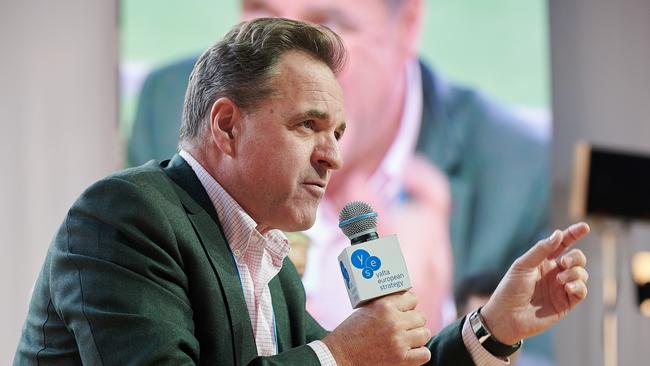
That’s an apt formulation. Atheism is a religious faith, as opposed to the simpler I-know-nothing helplessness of agnosticism. In my view atheism requires much more magical thinking, a much more radical ordering, or disordering, of the facts of life and the universe, to sustain itself than does Christian belief. Often in an atheist life, there’s a crisis of unbelief, a sudden realisation of the terrifying void of nothingness, the existential nihilism, that atheism postulates. It goes without saying there are countless good people who are atheists. But human beings are believing and searching creatures; the sense of God lies deep in every human heart.
Back to Ferguson: “The first phase was that as a historian I realised no society had been successfully organised on the basis of atheism. All attempts to do that have been catastrophic. That was an insight that came from studying 18th, 19th and 20th-century history. But then the next stage was realising that no individual can in fact be fully formed or ethically secure without religious faith. That insight has come more recently and has been born of our experience as a family.”
Ferguson has three older children from his first marriage. During that time, though a conscientious and believing atheist, he maintained a kind of cultural affiliation with institutional Christianity: “I got my older children baptised because I had a sort of (Alexis de) Tocqueville view that religion was good for society. It was part of Western society and I felt I should embrace it. But I would attend church (occasionally) in a spirit of scepticism and detachment.”
For Ferguson, in his atheist phase, going to church was almost a political act, as it has often been in history. Millions of east Europeans rallied around their national churches during the communist period because the church was often the only institution communists couldn’t quite crush. That’s not to say going to church under communism was a cynical act for Poles or Hungarians, but the political and religious mixed.
Ferguson: “I felt that if I was a conservative, and believed in the institutions of tradition, living in England it was kind of preposterous not to go to one’s local church. It was a kind of Tory impulse. I was in that state of mind where if the left was against religion, we should be for it. I was in favour of it. That was enough.” Now it’s different: “Now I attend church in a spirit of faith. Also I’m a learner. I learn about Christianity every week. I try to understand it better.”
Naturally I ask Ferguson if he believes that Christianity is actually true. He replies: “The extraordinary figure, Jesus of Nazareth” led a moral revolution that swept through the Roman Empire.
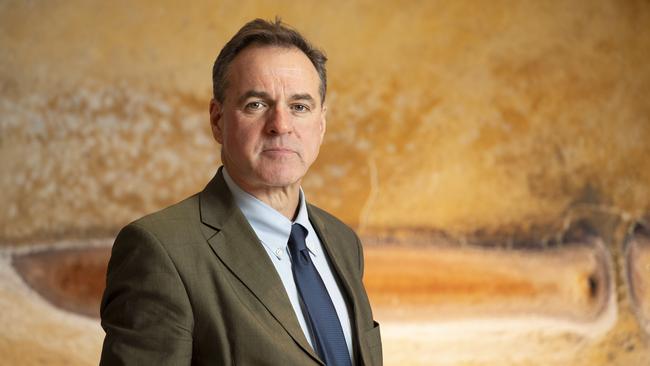
Ferguson: “What Jesus taught us was that there were things we couldn’t know. We couldn’t know God’s intent. When I read the Bible I don’t say: show me the miracle. My attitude is that this extraordinary document is describing the life of a unique individual whose power to transform the world has never been equalled. That’s good enough for me.”
But does he think it’s true that Jesus rose from the dead, and the rest? “I just don’t think that one can know that with certainty. But I think the teaching about how one should live, and the relationships one should have with one’s fellow human beings, is so powerful that I prefer to live as if it’s true. I can’t know, but it seems to me it’s preferable to live as if those claims are true. It’s hard to feel bound by the teachings if they’re lies. Faith is fundamentally different from reason. One can’t reason one’s way to God, at least I don’t think one can.
“The nature of faith is that one accepts that these apparently far-fetched claims are true. That’s the nature of faith.”
The idea you can’t reason your way to God would be contested by many Christians, and some ancient Greek philosophers, but it’s surely true you can’t prove God through reason. Christian apologists seldom try that. Rather, they aim more modestly to demonstrate there’s no conflict between faith and reason.
No Christian could possibly criticise Ferguson for the genuineness and honesty with which he shares the thoughtful, reflective, evolving state of his belief. Doubt routinely accompanies belief. It’s a kindness of him to share these inner thoughts; it’s a public affirmation of Christianity. And it’s inherent to the human condition to be faced with a situation that requires a decision, that requires action, even though the information, or the judgment, is in doubt.
As Ferguson says, faith involves belief that is beyond the rationally proven, not belief that contradicts reason but that is certainly beyond that which can be proven. The decision to believe is bold and brave, and it chimes with human nature. But it involves a positive decision. Belief is always an act of the will rather than an act of the intellect.
Let’s approach from another angle. Does Ferguson pray? “Yeah, I pray.”
Do you feel you’re praying to someone real? “Absolutely, just as there are no atheists in a foxhole, there aren’t many atheists when your child goes missing, when the life of somebody you love is threatened. Is it a kind of delusion to pray to an invisible super intelligence? I probably used to think that it was. But I prefer to think that prayer is meaningful, on the basis of faith in Christ. I don’t think of it that I’m on the phone to God but I am trying to convey to that which is beyond reason my fervent desire that my son not be killed or my daughter won’t have gone missing.
“These are powerful human impulses it seems utterly cruel to deny.
“To say, as I would have done as an atheist, this is all utterly pointless, the fate of your child is a matter of statistical probability, prayer is the equivalent of voodoo or the witchdoctor, don’t pray, it’s pointless – this is a cruel injunction. I’ve spent 60 years on this planet and I’m convinced that we can’t be spiritually naked, we can’t be spiritually void, it’s too miserable. I have five children, and in the life of every child there’s at least one disaster that seems as if it might be fatal. If you don’t pray in those moments you’re not flesh and blood.”
In becoming a Christian, it’s not like Ferguson has just put on a new jacket, changed his fashion sense. He has effectively revolutionised his intellectual outlook. As he says: “Going from atheism to Christianity is a big change.”
Ferguson was not previously an especially anti-God atheist but you could see the atheism in his books. By 2021, and the publication of his marvellous Doom: The Politics of Catastrophe, which is fast-paced, witty and a bit fevered itself, Ferguson expresses the beginning of anxiety about the consequences of the loss of Christian belief.
He writes: “The advance of science led to a decline not only of magical thinking but also of religious belief and observance. As GK Chesterton foresaw, this had the unintended consequence of creating spaces in people’s minds for new forms of magical thinking. Modern societies are highly susceptible to surrogate religions and magic, leading to new forms of irrational activity.”
He observes that those social trends have worsened: “I think there are a bunch of militant cults and religions, some derived from Christianity, that compete now in a deeply disorienting pseudo-secular civilisation. I say pseudo-secular because I agree with Tom Holland (author of Dominion) that a lot of Christianity is still there in the operating system but people are in denial about it. They don’t even recognise the Christian roots of much that they believe. This goes to the environment movement and the strange cult of wokeism. There are lots of curious mutant forms of Christianity afoot, I think. But that’s not the bad thing. I suspect throughout history the true culture, or milieu, has always been quite eclectic.”
Ferguson can live with that. What really upsets him is this: “We’ve given up on religious observance. This is a mistake – the empty churches on Sundays, people not saying grace at dinner. We’ve lost observance and in doing that we’ve lost something very powerful and very healing. It’s not so much that we’re culturally floating in an eclectic mishmash of half-remembered theology, it’s that we’ve just stopped being Christians. That seems to me a more serious problem.
“What strikes me, as a regular churchgoer now, not having been one before, is how much one learns every Sunday morning. Every hymn contains some new clue as to the relationship between us and God. I think the educational benefit of going to church almost equals the moral benefit, the uplift, the sense one gets of being somewhat reset.
“All of this matters hugely and as a society we’ve turned away from it. That explains, much more than the rise of social media, the mental health problems that characterise our societies today. We’re all sort of running this experiment, without God and without religious observance. And it’s not going well. But we blame it on the smartphone or on Twitter.
“I think the real explanation for the mental health epidemic is that we’ve thrown away those wonderful support mechanisms that evolved over centuries to get us through.”
The sharpest historian in the West thinks throwing away Christianity was pretty dumb. Doing so hurt our culture; more important, it has hurt individual human beings. Ferguson and his family joining the wider Christian family is significant in itself and perhaps a green shoot of wider hope.



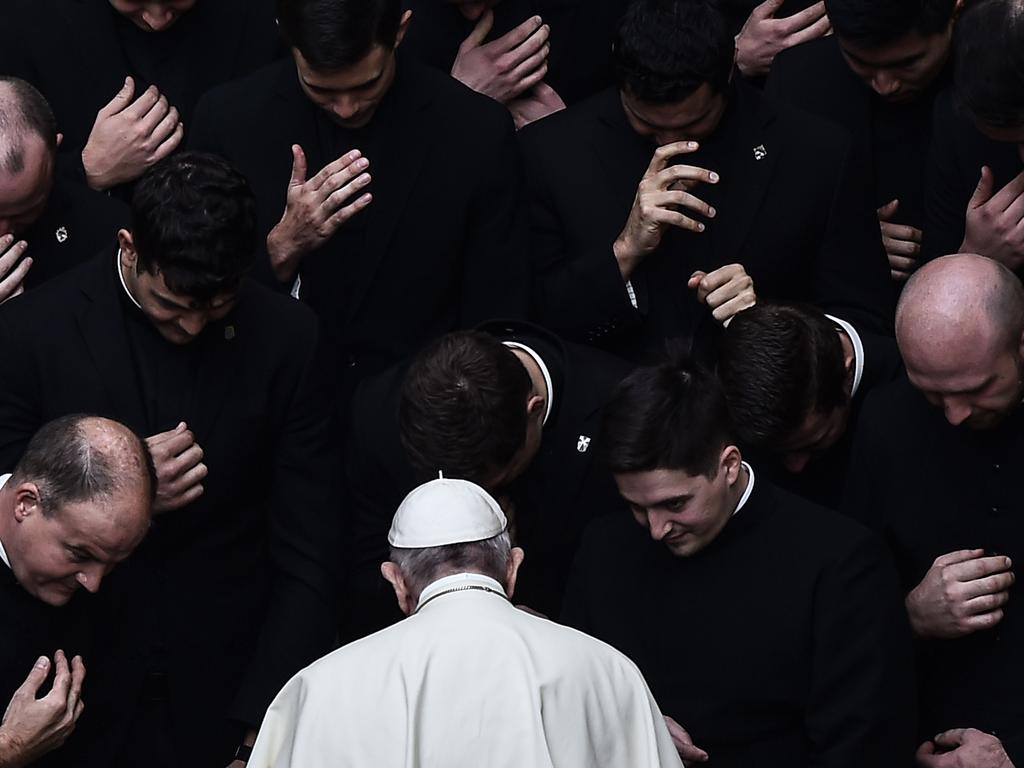


To join the conversation, please log in. Don't have an account? Register
Join the conversation, you are commenting as Logout